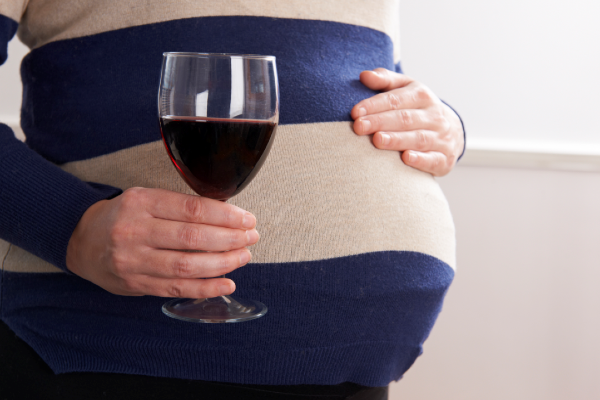The HSE has cautioned that women in Ireland are among the most likely globally to drink alcohol during pregnancy, thereby unintentionally harming their unborn baby.
Ireland is estimated to have the third-highest rate of Foetal Alcohol Spectrum Disorders (FASD), including Foetal Alcohol Syndrome, in a worldwide study of 187 nations.
This condition can cause learning difficulties, organ damage as well as facial deformity; lifelong symptoms.
Ireland is estimated to have the 3rd highest rate of Foetal Alcohol Spectrum Disorders in a global study for 187 countries. Find out more about #FASD and what we're doing to help here: https://t.co/YE1on2nGlc #AskAboutAlcohol #FASDay pic.twitter.com/hNdbCkJKtF
— HSE Ireland (@HSELive) September 9, 2019
The HSE campaign which was launched today calls for zero tolerance for drinking alcohol during pregnancy, and advises pregnant women to avoid drinking entirely while expecting.
Dr Mary O'Mahony, a HSE specialist in public health medicine, said to the Irish Independent:
"Pregnant women receive conflicting advice about drinking during pregnancy, and are often assured by family and friends that an occasional drink won't do any harm.
"But the fact is that there is no proven level of safe drinking during pregnancy. FASD causes life-long problems for babies."
Dr O'Mahony added;
"We do know that heavy or frequent drinking is more dangerous, and the more you drink, the greater the risk to your baby. But the only way to have zero risk, is to drink zero alcohol."
The journal 'JAMA Paediatrics' published the global table showing Ireland in third place for foetal alcohol-related problems two years ago.
A recent survey found one-in-two people in Ireland were aware of illnesses and conditions that affect babies after birth as a result of drinking alcohol during pregnancy.
Despite this, only one-in-10 had a knowledgable understanding of FASD, its cause and symptoms.
The HSE claims to have conversed with pregnant women and women considering having a baby;
"The overriding message we heard from these women was that there is a lot of misleading information and confusion around alcohol and pregnancy.
"There are so many opinions, voices, feelings and sources of advice that lead to confusion. There is a lack of clarity among this sea of voices and it can be very confusing to know the 'right thing' to do," it said.
Alcohol passes from the mother's blood into the baby's blood via the placenta and can damage the baby's developing brain and body.
FASD cause life-long problems for the baby's body, brain and development, including a lower IQ, learning difficulties, ADHD and difficulty controlling behaviour.
The HSE's campaign warns that drinking in the first three months of pregnancy is especially harmful as the unborn baby's body, organs and facial features are developing.










